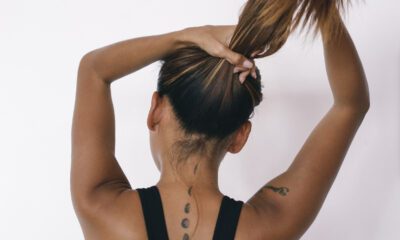EVERYONE knows that a good nightâs sleep has plenty of health benefits.
But a new report this week found that not getting enough shut-eye isnât only important â itâs actually a matter of life and death.

Researchers at University College London analysed 25 years of data from almost 8,000 people looking at how long they slept versus evidence of illnesses such as heart disease, cancer or diabetes.
Those who reported sleeping for five hours or fewer at age 50 were 30 per cent more likely to have two or more long-term health problems â and a 25 per cent increased risk of death.
By 60, those who got less kip were found to have a 32 per cent greater risk of developing illnesses, while at 70 the increase was 40 per cent.
Sleep expert and clinical psychologist Dr Lindsay Browning told Sun on Sunday Health: âThese findings underline how important it is to ensure you are getting enough sleep.
âIt is vital for our longevity. When we sleep, our brains physically repair our bodies and regulate important hormones which control the functioning of our bodies during the day.â
Stresses and strains
According to NHS guidelines, the recommended amount of sleep for an adult over the age of 18 is seven to nine hours.
Yet recent studies have shown the impact the cost-of-living crisis has had on our slumber â with almost one in four of us not getting enough and actually losing sleep due to the stresses and strains of modern life.
Here Dr Browning, who runs troublesleeping.co.uk, gives advice on getting enough sleep.
She says: âWe all know the classic tips, like leaving your mobile phone downstairs or having a hot drink before bedtime.
âThey can help. But there are a number of other simple steps you can take to get more sleep and transform your life.â
GET UP
âMANY people I treat for sleep issues find themselves napping during the day. This is an absolute no-no.
âEven worse are cat-naps on the sofa for five or ten minutes at 9pm while watching TV.
âWhy? Well, if you were trying to persuade a child to eat a healthy meal, would you give them a bar of chocolate an hour before?
âNo, because theyâd say they were full up and refuse the good stuff.
âSleep is the same. You need to fall into bed starving hungry for sleep.â
DECOMPRESS YOUR DAY

âBEFORE you go to bed, take time to reflect on things that happened that day, or concerns you have.
âWriting a diary is a great way of helping to brain dump so it isnât overloaded and can switch off for sleep.
âWrite it by hand â donât use a laptop or phone.â
CUT OUT CAT NAPS

âMANY people I treat for sleep issues find themselves napping during the day. This is an absolute no-no.
âEven worse are cat-naps on the sofa for five or ten minutes at 9pm while watching TV.
âWhy? Well, if you were trying to persuade a child to eat a healthy meal, would you give them a bar of chocolate an hour before?
âNo, because theyâd say they were full up and refuse the good stuff.
âSleep is the same. You need to fall into bed starving hungry for sleep.â
M.O.T. YOUR ROOM

âYOU should change your mattress once every seven years, but if youâve put on weight you might need to do that sooner.
âAlthough not scientifically-proven, sleep sprays, scented candles and things like CBD oil may help too.
âCreating a relaxed, comfortable environment will boost your chances of a good nightâs rest.â
HAVE A NIGHT ALONE

âIF you are sleeping alongside a partner, consider going into the spare room.
âWe tend to sleep much better separately and although itâs not a suitable option for all, for some it can actually really help.â
TIRE YOURSELF OUT

âAS we get older, we get less active. Thatâs one reason why over-60s generally require less sleep and find it harder to nod off.
âExercise directly impacts the need for âdeep sleepâ at night. Even moderate exercise like a brisk walk increases deep sleep.
âBut, it is important to avoid exercise too close to bedtime, as the release of endorphins and adrenaline can be disruptive to sleep.â
CBT-I
âIF none of the above work, you might need clinical help.
âCognitive behavioural therapy for insomnia, sometimes called CBT-I, is usually recommended as the first line of treatment.
âIt is a structured programme that helps insomniacs to identify and replace thoughts and behaviours that cause or worsen sleep problems with habits that promote sound slumber.
âUnlike sleeping pills, CBT-I helps overcome the underlying causes of insomnia.â

Must See
-


Tips
/ 10 months agoTen reasons for Amsterdam
Amsterdam mainly celebrates April 27th in Orange. The king’s birthday is traditionally celebrated with a...
-


Tips
/ 11 months agoTen travel tips for South Korea
A country between high-tech and tradition. A visit to East Asian South Korea is worthwhile...
-


Tips
/ 11 months agoTen reasons for Mecklenburg-West Pomerania
No other federal state has as much water as Mecklenburg-Western Pomerania. Baltic Sea waves wash...













